Biden, Japan’s new PM discuss China, Russia, nukes in 1st virtual talks
US President Joe Biden has again claimed concerns about Chinese and Russian rising military assertiveness in his first virtual meeting with Japan’s new Prime Minister Fumio Kishida, who also raised the idea of achieving “a world without nuclear weapons.”
The White House said the two leaders used the Friday discourse to also discuss opportunities to enhance economic ties, launching a new “2 plus 2” dialogue focused on addressing economic issues, ranging from supply chain challenges and investment in key technologies to further cooperation on trade issues, AP reported Saturday.
According to the White House, in preparation for the virtual meeting, Biden’s National Security Adviser Jake Sullivan held a phone conversation with his Japanese counterpart, Takeo Akiba, on Thursday to discuss North Korea, China and “the importance of solidarity in signaling to Moscow the strong, united response that would result from any attack” on Ukraine.
Biden and top aides, the report added, have sought to rally the support of partners of the US-led NATO military alliance as well as other allies to impose harsh sanctions against Russia if it moves forward with what Washington and Western media allege as a looming military action to invade neighboring Ukraine despite repeated denials by Moscow.
Kishida, whose nation is entirely dependent on the US military for its protection, expressed support for Biden's purported efforts to “deter” Russia and “made clear that Japan would be fully behind the US and continue to coordinate with other allies on taking strong action should Russia attack,” the report further noted, quoting an unnamed Biden administration official.
The development came shortly after US Secretary of State Antony Blinken and Defense Secretary Lloyd Austin also held virtual talks with their Japanese counterparts earlier this month, when they discussed China's military maneuvering and North Korea's nuclear program in face of growing American naval provocations in the region.
Biden also accepted Kishida's invitation to visit Japan later this spring for an official visit and to attend this year's so-called Quad Summit, the meeting held between the leaders of Japan, the US, Australia and India to coordinate anti-China efforts and policies.
The report, meanwhile, cited the Japanese prime minister as saying that the two leaders spent a “significant amount" of their 80-minute call on issues surrounding China, including shared concerns about Beijing’s policies toward Chinese Taipei, a self-governed island claimed by China.
Kishida, who is from Hiroshima -- on which the US dropped an atomic bomb at the end of the World War II, massacring nearly 70,000 people – also said he mentioned to Biden concerns about nuclear security and the idea of achieving “a world without nuclear weapons.”
“President Biden and I were able to exchange views frankly, in a very calm and quiet manner, about how Japan and the United States together cooperate and lead the international society, which I believe will lead to further strengthening of the Japan-US alliance,” Kishida further stated after the meeting.
According to the report, the Japanese prime minister also expressed his determination to drastically strengthen his country’s military power while Biden spoke of the American commitment to abiding by the 1960 Japan-US security treaty and made it clear it covers the Japanese-controlled disputed islands of Senkaku, which China refers to as Diaoyu.
Later, Japanese Deputy Chief Cabinet Secretary Seiji Kihara said Kishida explained his commitment to strengthening Japan’s military capability, saying the prime minister would consider “all options including acquiring preemptive strike capability.”
The virtual meeting also came after North Korea suggested earlier in the week that it might resume nuclear and long-range missile testing, which has been paused for more than three years.
This is while North Korean Leader Kim Jong-un presided over a Politburo meeting of the ruling Workers’ Party on Thursday in which officials set policy goals for “immediately bolstering” military capabilities to counter what were described as “hostile moves” by the Americans, according to the Korean Central News Agency.
The White House also stated that Biden made clear to Kishida that Washington would work closely with South Korea and Japan on the next steps to discourage North Korea from what it claimed as “further provocation.”
The AP report also cited anonymous “senior administration officials” as saying that the Biden administration expects to announce further moves to address North Korea in the coming days.
Biden, who has sought to put greater focus on the Indo-Pacific amid China's rise as a global power, had built a warm relationship with Japan's last prime minister, Yoshihide Suga, and is hoping to build a similar rapport with Kishida.
South Korean President Yoon arrested over failed martial law bid
VIDEO | Press TV's news headlines
US budget deficit surges to record $711 billion
VIDEO | Yemeni army conducts three attacks against Israel within 12 hours
VIDEO | Gaza’s kidney patients face imminent death amid lack of fuel
Yemeni drones hit targets in Israel-occupied Yaffa
VIDEO | Is the worst yet to come?
ICC prosecutor pushes rejection of appeal on Netanyahu arrest warrant


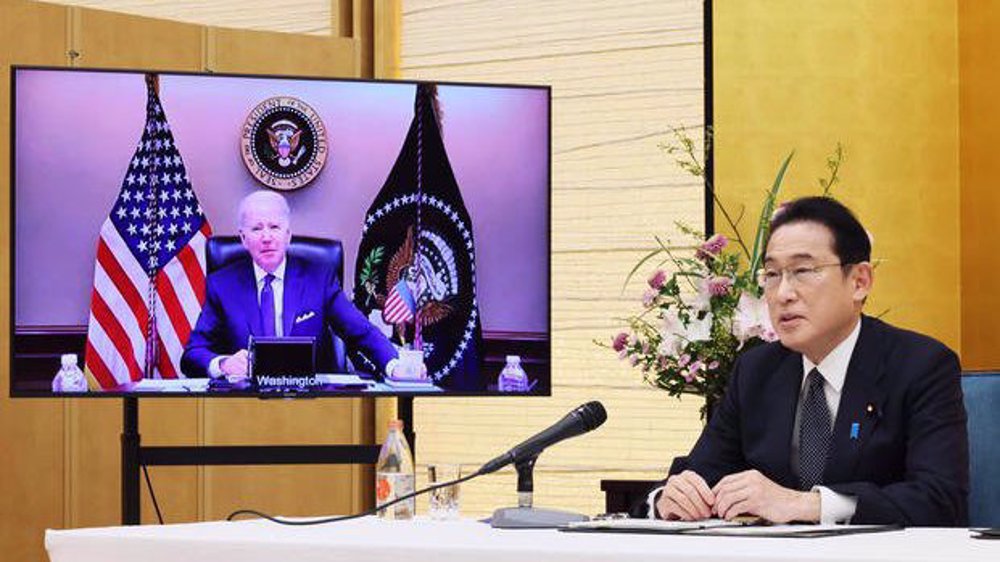
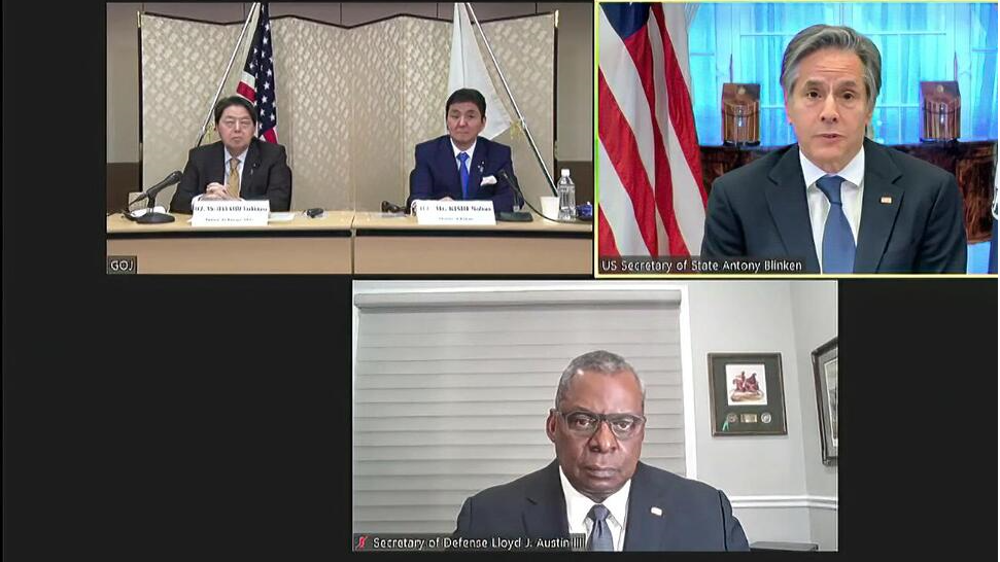
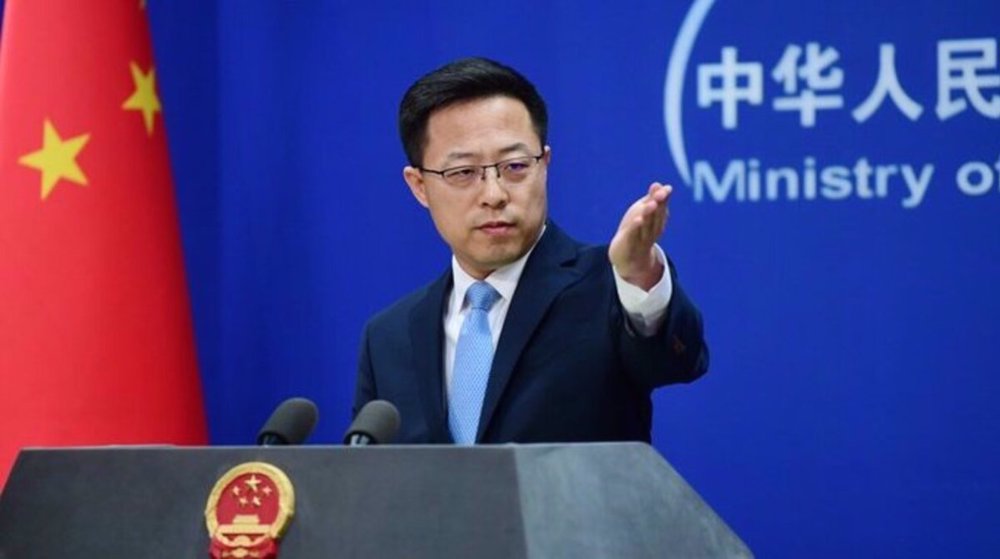
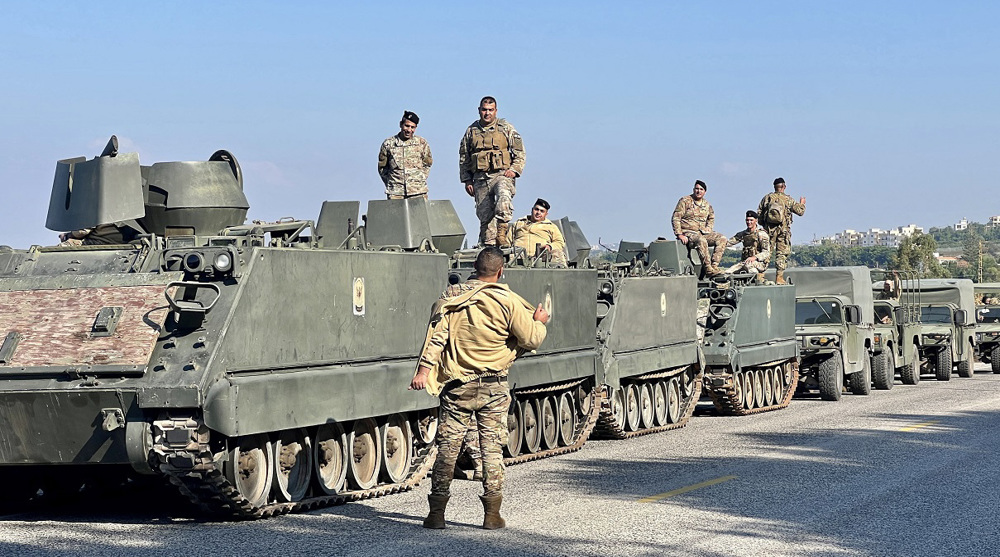
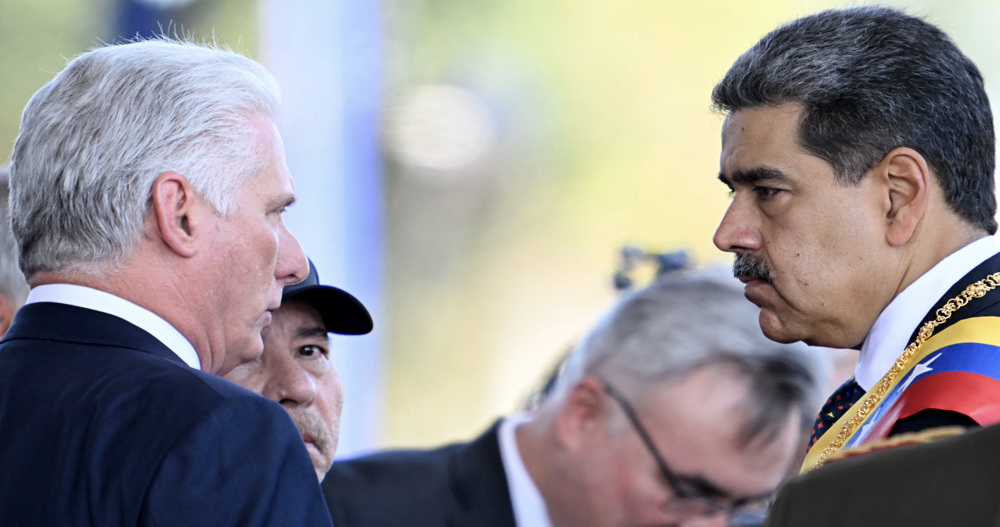
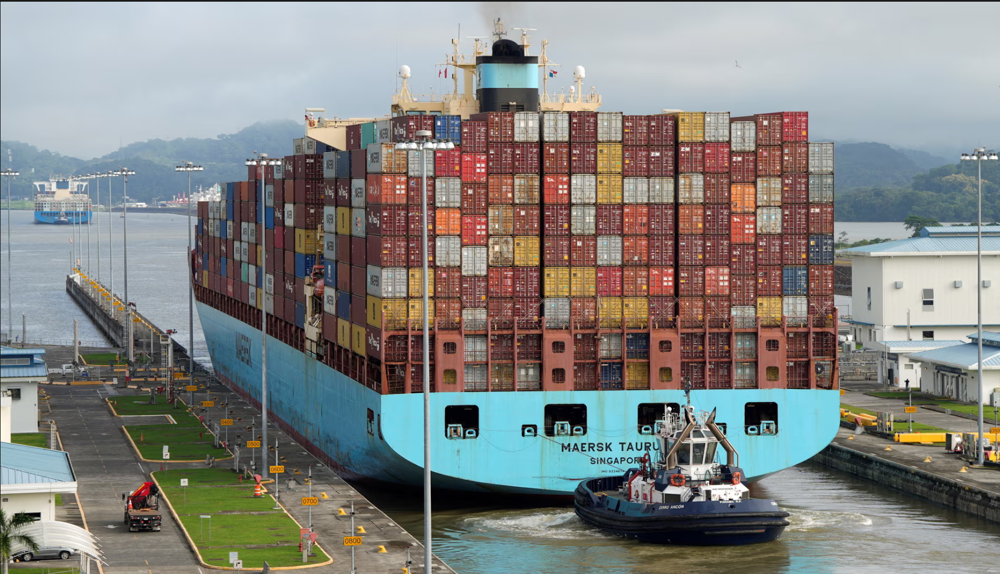



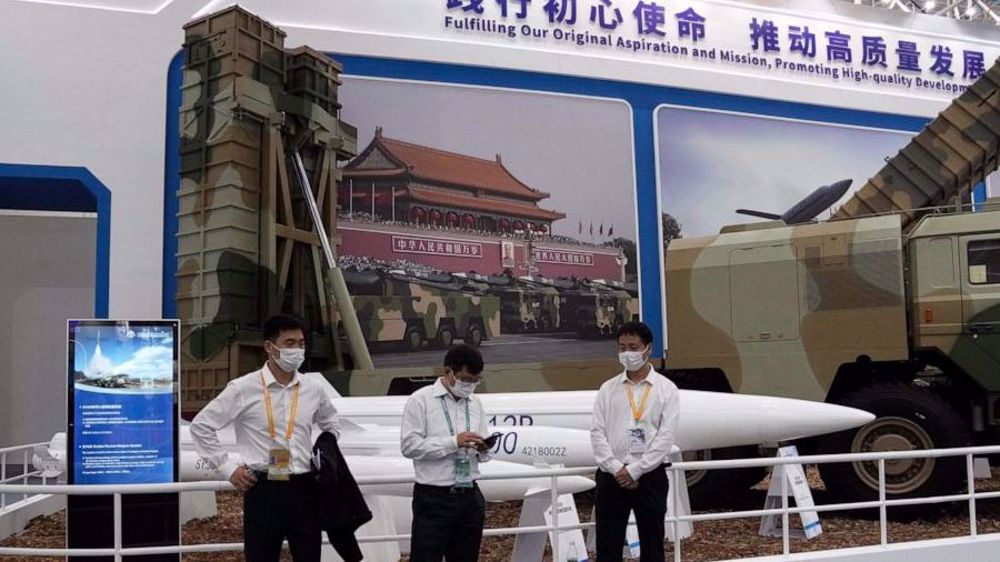
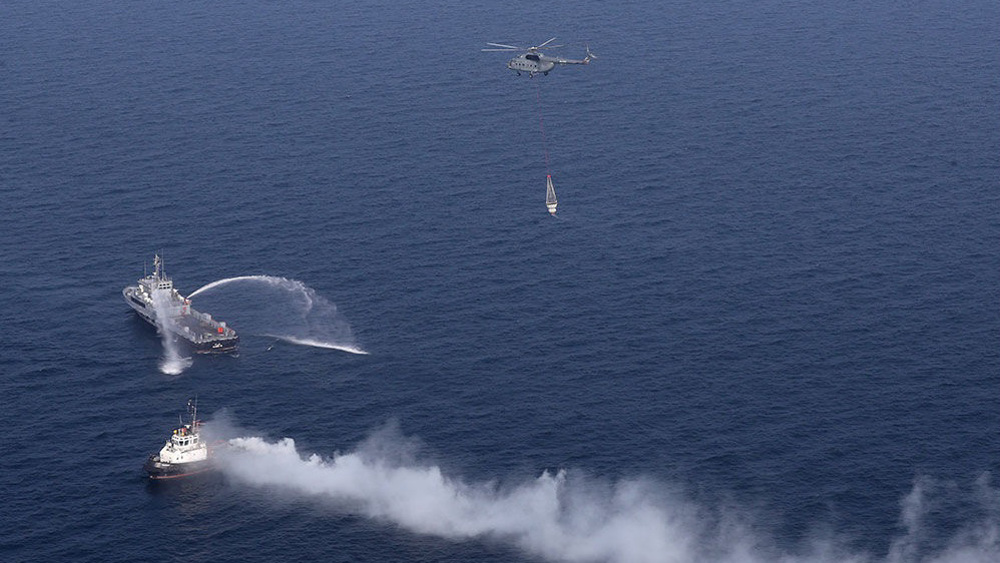
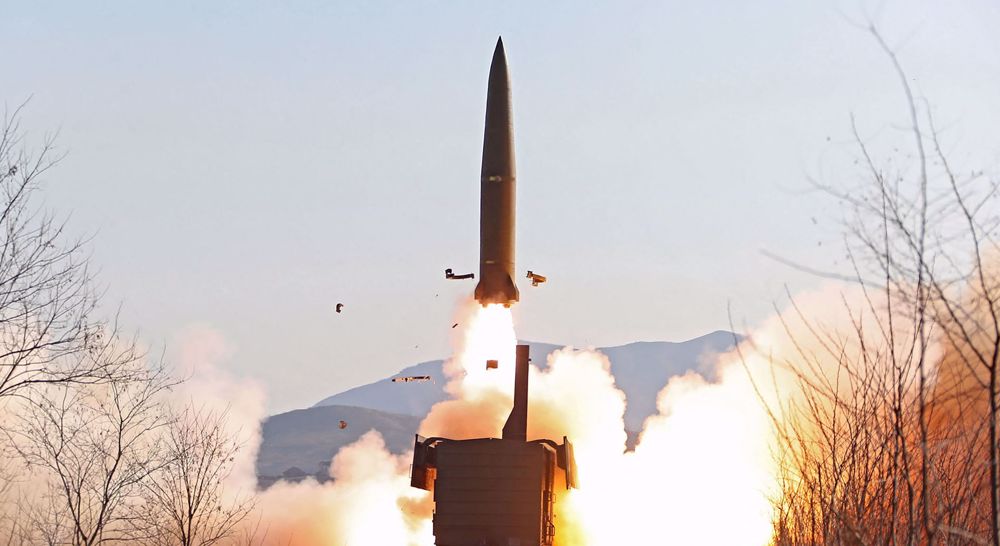
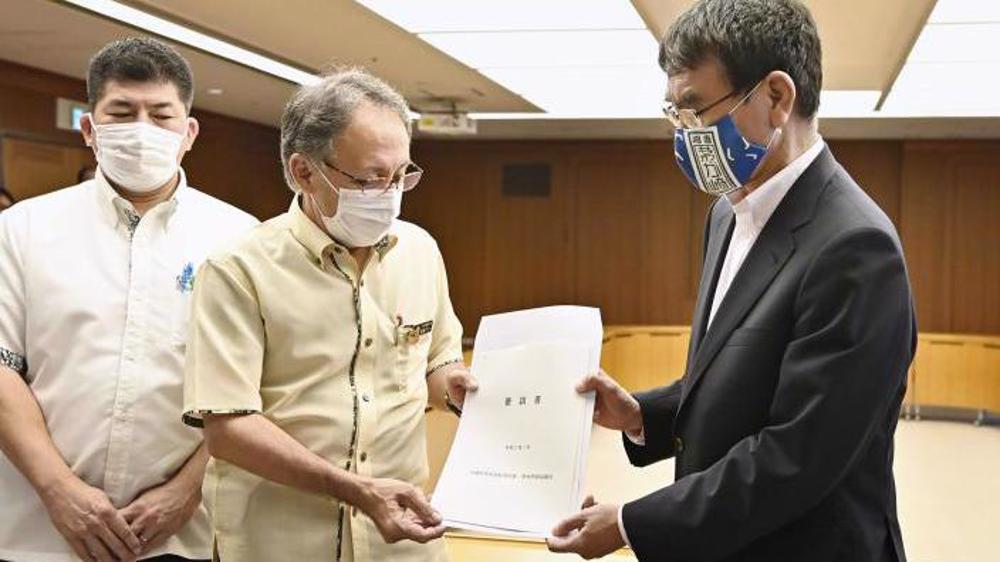

 This makes it easy to access the Press TV website
This makes it easy to access the Press TV website